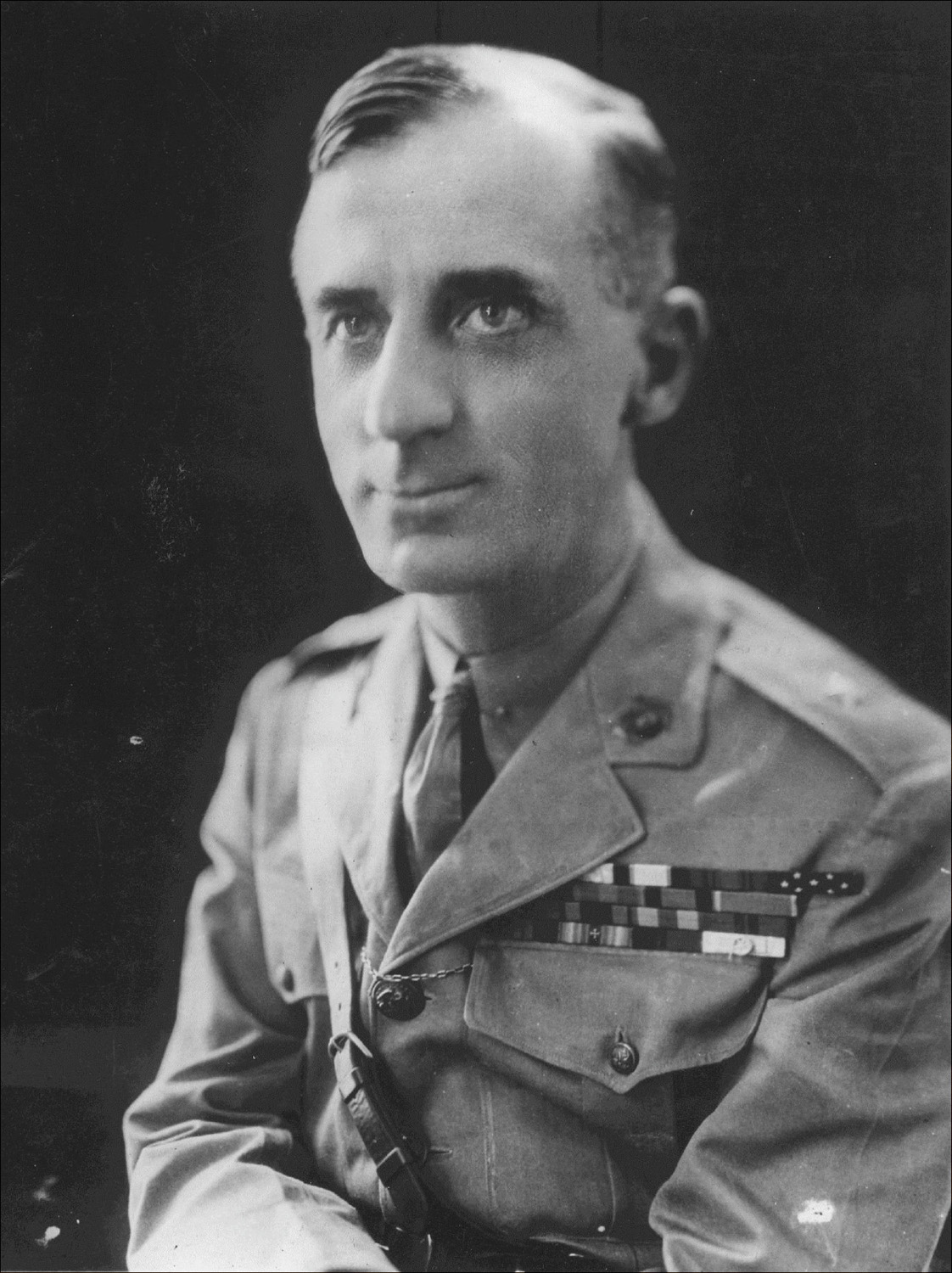1900–1917: The Military Goes to Work Protecting America’s Sphere of Influence

Brigadier General Smedley Butler, Official USMC photograph, 1927.
The first known American war hero to recognize America’s war machine was Major General Smedley Darlington Butler, United States Marine Corp. Butler was awarded two Congressional Medals of Honor for the capture of Vera Cruz, Mexico, in 1914, and for the capture of Ft. Riviere, Haiti, in 1917. Presented with the Distinguished Service Medal in 1919, he was the most decorated Marine in American history at the time of his death in 1940.
War heroes Audie Murphy and Alvin York appear in American history books and movies, but not Major General Butler, unsurprisingly. You see, following his retirement, Smedley openly expressed his views opposing the American war system, almost assuredly prompting his omission from textbooks and the movie theaters. In his book War is a Racket, he exposes the relationship between the money powers and the United States government.
I spent 33 years and four months in active military service and during that period I spent most of my time as a high-class muscle man for Big Business, for Wall Street and the bankers. In short, I was a racketeer, a gangster for capitalism. I helped make Mexico and especially Tampico safe for American oil interests in 1914. I helped make Haiti and Cuba a decent place for the National City Bank boys to collect revenues in. I helped in the raping of half a dozen Central American republics for the benefit of Wall Street. I helped purify Nicaragua for the International Banking House of Brown Brothers in 1902–1912. I brought light to the Dominican Republic for the American sugar interests in 1916. I helped make Honduras right for the American fruit companies in 1903. In China in 1927, I helped see to it that Standard Oil went on its way unmolested. Looking back on it, I might have given Al Capone a few hints. The best he could do was to operate his racket in three districts. I operated on three continents. . . .92
Rather than establishing colonies or protectorates in the Caribbean and Pacific immediately following the Spanish-American War, America indirectly declared to the world that these lands were off-limits to any other country. Cuba, the Philippines, and many Latin American countries became a part of America’s “sphere of influence.”
Avoiding the pitfalls and complications of declaring a conquered nation a colony with democratic rights, and the expenses incurred administering a colony, economic and political control was still held by United States corporations, banks, and the government. US battleships and Marines stood ready to protect the dollars. As a matter of fact, in 1921, the Marine Corps brass issued a manual entitled The Strategy and Tactics of Small Wars, for the purpose of indoctrinating Marines in how to fight and react properly in future small wars, as they did in Mexico, Haiti, etc.
In 1911, the Dominican Republic’s US-supported president was assassinated. Following the election of a new provisional president, President Taft sent some commissioners, along with 750 US Marines. The government promptly stepped down, and a new US-backed government was established.93 In 1912, the Marines were sent into Nicaragua to put down a revolt. The banking concern Brown Brothers imposed a new loan onto the government, which included an agreement that the country’s railroads, customs houses, and its central bank would now be controlled by Brown Brothers. Thousands of Marines were stationed in Nicaragua for thirteen years, sending a message to the rest of the world that the financial and military might of the United States cannot be challenged.94
Between 1914 and 1915, the United States used domestic disturbances six times to take control of the Haitian customs houses. When Haiti elected a new president, he refused to hand over the railroads and banks. Smedley was one of the Marines who landed in Port au Prince and seized $500,000, which was immediately transported back to New York and deposited into the National City Bank vaults. Six years later, one of the bank executives testified before the Senate that the purpose of this was to force Haiti into accepting the usual custom house arrangement.95
These so-called “banana republics” were forced into economic subservience by America’s military might for the profit and continued existence of America’s banks and corporations. They are just some of the countries around the world that have been placed into America’s sphere of influence.